
Many of these of the stories I’ve recorded here since July 2017—51 of them now!—are completely true. Some completely fictional. Some are a mix. This one is mixed. I will leave it to you to surmise what is real and what is fantasy below. I will confess the dialog with the Book Muse happened exactly as written below…
Prologue
Below are three old “Mike” stories. In them there appear 3 Mikes as well. They were written over several years many years ago. If, strung together as below, they are a little disjointed, forgive me. Tying them together under deadline is…problematic. I’ll work on their fluidity as chapters in one story in future drafts. There are other Mike stories as well in the old slush pile of stories. I’ll revisit them sometime to see if they are interesting enough for this venue.
Mike Part I
Book scouts.
Many booksellers, especially those with open shops, have had scouts. I’ve had numerous over the years. Some were one-shot visits. Others came in often for years and years.
I don’t know if there are many still out there. They often needed brick and mortar bookstores to sell more than just the occasional highly collectible or rare book. For most scouts made their living (or more often supplemented their living) by finding secret sources of books. They would hit the remote country auctions. They would ferret out the old barn full of dusty boxes. Since they didn’t have their own store, they had time to wander the countryside seeking books. They usually had connections with other kinds of scouts. The common denominator was often the estate auction, flea market or antique mall culture. For example, a scout who specialized copper and brass collectibles might find out about a private estate that was being liquidated from a relative. After getting everything in his specialty out of there, he might tell a book scout about all the boxes of books he had seen up in the attic, likely hoping the book guy would repay the favor someday.
Scouts would rattle around the fringes of more formal book society, darting in and out with their “finds.” They tended to know enough to cause trouble at both ends. They were middlemen. They’d seek out someone or some place with books. They’d buy what they thought they could “make something on”—often without scruple or fear of retribution. They’d then pass the books off to established dealers.
With a regional network of dealers to service, they would often spend as much time selling to their stable of full-time booksellers than selling books in flea markets or other venues where they might have their own outlet; their own table or booth.
Very many of the scouts that served me once or a thousand times were exotic figures. Exotic can mean many things.
I don’t see scouts anymore. Maybe they’ve moved to internet selling themselves. Maybe like Kit Carson and the famous scouts of the American West, they moved on to the Happy Hunting Grounds in the next world. Once the West was settled—tamed—scouts weren’t needed any longer. Has the internet and modern instant communication tamed the book trade? Maybe some of this story is about the days when the old book trade wasn’t so tame.
Wait. Let me take that back. I do see one scout still almost every week.
He’s a legendary DC regional bookseller who scouts for me now. A LOT.
Nelson Freck has been a fixture in The DC region bookselling scene since the 70s. I met him when I was first starting out in 1980. He was an expert in Mystery and Science Fiction first editions. Back then he would scout me! He’d visit my fledgling shop and look for my mistakes. He would pay my price on things he wanted and sometimes advise me why he was taking the books he’d found. He would tell me things to look for and then head out. I learned a lot from him over the years. I should devote an entire story about him some time but here is the short version.
Nelson had his own shop in the early days. Chaos Unlimited. 1979-1989. Collectible Sci-Fi and Mysteries. Over the years he closed the business several times for different reasons—moving, lost lease, career change… He asked me to buy out his remaining stock several times. All these years later I imagine it was never the entire stock. Just the “common stock.” He would unload his bulk on me so he would be free for his next gambit. He always returned to bookselling in some incarnation and started up again. When that happened, he would start buying books from me again—often that would include books he’d sold me from his last closing. I think some of his mystery and sci-fi first editions bounced between us 5 or 6 times.
For a while he became a serious bicycler. He would bike up from Washington DC to Frederick, Maryland. That is not a short haul nor an easy one. Check the map. I’m not sure what routes he took but even then it can’t have been a “ride in the park.” Nowadays with all the traffic, I couldn’t imagine it. When he got to Frederick, he would roll his bike into my store and shop for a while, make his stacks on the counter, pay and ride away again. I can’t remember the logistics of getting the books down to him. Maybe he picked them up from me when I drove down to the monthly Waverly auctions in Bethesda. Maybe he will remember how the books he bought got from the Frederick exurb to DC.
Then he spent a fairly long tenure in a profit sharing position with iconic Second Story Books. Nelson bought and sold collectible Mystery and Sci-Fi under the Second Story aegis. He and Second Story’s owner, Alan Stypeck, would share the profits, if any. Both fellows have quirky and sometime volatile personalities. I think that relationship broke up, unamicably, several times. Again I would find myself buying Nelson’s (share of the) closed out collection. And again he would reopen there or somewhere else after a hiatus.
Now Nelson is online. Since about 2005 he has been scouting and making house calls for me. We get so many requests to “please come buy my books.” No one else in the DC region is buying entire collections very much. When someone is moving or wrapping up an estate, they usually want ALL the books gone. With our method of “nose to tail” bookselling we are able to take “everything,” bring it to the warehouse and sort it out there. At the warehouse we can sort the books for online or brick and mortar retail sales, bulk sales where we sell large quantities off domestically and internationally—often for pennies per book. Books that we have too many copies of or for which there is no audience we can often sell in our Books By the Foot division. We donate a lot of kid’s books. If there’s no way to keep a book a book—even for pennies—we are able to recycle it as paper. So Nelson, now with some associates, makes a lot of calls for us. I give him the name, phone number and brief description of the collection. He contacts the seller, makes the visit. If the books have any value—at least enough to offset the time labor and transport costs—he makes the deal, packs and hauls the collections to us. He adds a percentage to what he paid for the collection and adds on transportation costs. It is a system that usually works for all three parties—us, the seller and Nelson–the “go between.”
I often bump into Nelson several times a week at the Wonder Book warehouse. He has backed his UHaul van or truck to a loading dock and my folks are dragging off boxes of books he’s gotten from somewhere.
We’ve had some bumps—usually about money—but Nelson has rescued hundreds of thousands of books from DC region collections I’ve referred him to.
A couple years ago he had a major health scare. He was in a financial pickle with an Amazon “inventory loan” coming due. He asked, and I bought him out once again!
Was that this the last time?
But like a phoenix he has arisen and is selling books of his own again—as well as picking up loads for me from house calls and leftovers from charity sales.
But the “Full Nelson” story will have to wait.
This story is about a Mike.
Mike Anderson.
How I met him is lost in the fog of time. He was a fixture in the country auctions and flea markets I used to frequent in the 1980s. So likely it was there.
When he first started scouting for me is lost as well. It was probably around 1990 when we moved into our current brick and mortar retail location.
The store is virtually unchanged since 1990. It consists of 6 “bays” or storefronts. So there are 6 doors in front and 6 in back. Most of the doors are unused.
“Ummm…is this ever getting to Mike or Mikes?”
My book muse…
“Greetings and salutations. Am I digressing? Again?”
“A bit. Or perhaps it is just the groundwork yer layin’ again?”
“Sure. That’s it. Setting the scene as it were.”
“Have much more scene setting left?”
“Just a bit.”
“Hope so.”
So the shopping center was designed with many potential storefronts. That way the landlord could accommodate small and larger users. In 1990 we decided to lease 6 spaces. There were no walls inside. I recall when Maribeth Visco first unlocked the door to the raw never used dusty building. We stepped inside. I looked around me. It was huge! 11,000 square feet. My first thought was “Wonderland”!
In back is a fairly narrow service alley. There are six nondescript doors along our back wall.
My office was behind “Door #3.”
Behind “Door #6” is the storeroom through which once upon a time ALL the books in the Wonder Book empire passed.
I would often go in early and sort and price books in that storeroom. I’d sit on a stool with the radio on—usually NPR or Imus—and go through boxes of books we’d bought from the public. I vividly recall sitting there on the morning of September 11, 2001 when the world changed.
The culls and junk I would toss against the back door for someone to take out back to the dumpster later. Back then there was no recycling of books nor much else if I recall. By opening time, there could be a large pile pressing on that door. All the colorful marks on that door were left by books heading to their doom.
It was back in that alley where I encountered Mike and did business with him hundreds of times.
He was short and grizzled with a ragged salt and pepper beard. The beard sort of stuck out in every direction. It extended down his neck to his collar and likely beyond. It also extended up his cheeks nearly to his eyes. He would usually wear an old greasy blue jump suit. I’d go out to find him with a cigarette in his mouth looking like mechanic at the end of a bad day. Often I could smell him from several feet away. He usually smelled of oil and gas and solvents and…whatever. For his “bookmobile” was a 1970 Ford Econoline van which burned oil prodigiously and which was in constant need of repair.
His frequent proximity to old oil gave him a greasy sheen. His hands were dark and his nails were black. His van was once blue. It had faded over fifteen or twenty-five years to an uneven gray. Numerous rust spots defaced and sometimes penetrated its surface. There were dents and scrapes of various dimensions and severity on all four sides. Maybe on the roof too for all I know.
He was a ne’er-do-well full of stories. The just-missed opportunities. The unfair treatment. The chronic bad fortunes. The personal and family crises which blocked his success whenever things started to look up.
His crises would often spill over onto me. Every six months or so his mortgage would begin to rumble and churn. It would erupt tomorrow if he didn’t come up with enough cash. His wife would need some desperate dental work, and since the last bill hadn’t been paid, the dentist would proceed only if Mike came up with enough cash. The van’s inspection was due tomorrow. His livelihood and my book flow would come to a grinding halt because there wasn’t enough cash. It wouldn’t pass inspection unless this, that and this was done.
It seemed it got so I was all that stood between him and poverty, disease and homelessness at these times when he would take me aside and ask for an “advance.”
I would always give him the money.
He made good. Eventually. But always in trade. There were scraps of paper pinned to the wall next to my desk which tracked his account balance. Periodically, it would approach zero before crashing deeply into the red for a much longer period. He would bring books every week or two. He would knock down the debt a little and I would cut a check for the rest.
He found some great books. Often, accidentally. Sometimes he would present an item to me as if it was the Holy Grail. Carefully cradled in his greasy paws, he would hold it before my eyes like Peter Lorre in a film noir (of course, I would be Humphrey Bogart. It’s my memory, and I remember as I damn well please.)
In his eyes, I could read: “Is this the stuff dreams are made of? The Maltese Falcon?”
Nope.
Inevitably, the book was wrong or had some fatal flaw. The real jewel he uncovered would usually lay camouflaged in a box as “come alongs.”
My adventures with Mike could fill many chapters and may yet fill more chapters. And though, our personal and business ending was rather tragic I have generally good memories of him.
The first part of this adventure begins as most did: Mike making “The Phone Call.”
“Can I come in, Chuck?”
“When?”
“Now.”
“Now” meant he needed money.
Though there were no windows in my office at the rear of that store, I was always made aware of his arrival by his van’s signature song.
The song was comprised of two motifs: the ticking of his valves provided the rhythm; his exhaust system supplied a melody. It was like a hillbilly duo on the front porch in a West Virginia mountain cabin. All “country.” Kind of like Deliverance brought to my medium upscale Frederick exurb shopping center location. One good ole boy tapping out the beat with a stick on the porch rail. Another blowing a monotonal melody on his jug. For his exhaust system breathed irregularly. Sometimes in quarter notes—4/4 time:
“Voom. Voom, voom, voom. Voom. Voom, voom, voom….”
Until subconsciously realizing how sick it was the van would pick up the beat:
“Vum, vum, vum, vumvumvum…”
Suddenly, out of breath, there’d be a long pause. Often for several full measures. The pause would go on lulling you into a sense that the song was over until some nearly extinguished spark under the hood would bring the song back with a long gasping breath:
“VoooOOom! Vum, vum, vum, vum. VoooOOom.”
While below that melody, the rhythm stanza would beat out:
“Tic. Tic, tic, tic. Tickety. Tic, tic, tic, tic. Ta, ta, ta, ta, ta. Tic, tic, tic, tic.”
He wouldn’t turn the van off—fearful it wouldn’t start again I suppose.
He didn’t need to knock. I knew he was out there. I would go out to find him lining boxes dragged out of the van against the back wall of my building like the mini-merchant he was—displaying his wares for my inspection. A cigarette dangled out of his mouth. The gray ash at its end lengthening until it fell off of its own accord.
This lot looked rather promising. There was a lot of 1950’s literature. Ginsburg, Corso, Burroughs, Miller, Ferlinghetti. City Lights. New Directions. Black Cat. Grove.
Not his usual dreck but nothing really collectible. Only a few things even came close. That is until I slipped out a magazine size pamphlet from among a stack of Evergreens.
“Playboy magazine wishes to announce to close friends and reviewers the discovery of a promising young writer with a new voice and a new beat.”
That’s all that was printed on the otherwise plain gray wraps. I opened the front wrap to a semi-gloss title page that read:
“The Beat of My Road, by John Kerouac.”
Below that:
“A Work in Progress.”
In tiny print at the bottom was:
“Copyright 1956. Playboy Magazine.”
The fifty-three pages of text were closely spaced and covered each sheet completely. There were no margins.
“I think this may be something. Maybe something real good.”
Mike usually began babbling when he thought there was some money in the offering, but this time he was curiously quiet.
“Why don’t you keep unloading the van while I make a call on this.”
As usual, his van was packed floor to ceiling with boxes and flats. The chassis was crushing the sprung springs and resting on the axles.
I had spoken with Big Johnson—Allen—the modern lit dealer, only a few days before. He had told me he was working with a PhD who was trying to put together a comprehensive Kerouac bibliography.
“Hey, Allen, it’s Chuck. Got a minute?…”
I read off the vital information. He still had the Kerouac file on his desk. It listed the PhD’s “wants” and “has.”
“Hmmm. Chuck, it’s not here. I’ve never heard of it either. Ummm. How much do you need for it?”
(I HATE it when specialists ask that question. If I “knew” the value of the book I would price and offer it to you. You’re the one with the arcane knowledge. Why ask me to guess?)
“Hell. You’re the expert. What’s it worth?”
“Pretty much whatever we want to put on it, if it’s what I think it is.”
“Ballpark?”
“Ten grand. Who knows?”
That was a lot of money then. To Mike, his third would be the Irish lottery won at last. To me, my third would be a big book—a good supplement to the day. To Johnson, his third would be a good sale and the prestige of discovery and the supply of something unique—undiscovered to the rare book market.
I went out back and told Mike the good news. I could pay him three thousand dollars for the “come long” pamphlet, and for the rest of the van, I could add another two hundred dollars. A thirty-two hundred dollar day for scruffy old Mike. Great, right?
He turned ashen. Ashen is a literary medical condition, rarely to be encountered in real life. At least from my limited pathological experience up to that time. But ashen Mike became.
“Chuck, there was a box of them.”
Blithely, I responded, “Mike, books come and go. No use crying over spilt milk……. What?!”
“That thing, Chuck. That thing in your hand. There was a box of ’em.”
The pregnant pause that followed was much like Mike’s van holding its breath. The rhythmic beat of life was suspended. I held my breath while everything backed up within me. The significance had hit home.
“There musta been a hunnerd of ’em, Chuck. It looked like just a box of reprints. Magazines. I left ’em behind. It was raining. It was an outdoor auction. They were all the same! My van was full of real books.”
Mike Part II
Mike and I weren’t friends. It was a symbiotic relationship. Sort of. Maybe an unequal symbiotic relationship. I felt and still feel I gave far more than I got. I have proof of it somewhere. The final balance, scribbled in pencil, a pinhole in it from where it hung on my old office wall. Thousands of dollars.
(That old office. We finally tore it out in 2017 after years of disuse—read about it a bit here)
But there was level of trust. Plus the fact that I was his “bank” made me think there would be some loyalty, some anxiousness to please, and a feeling of indebtedness that he wouldn’t do me wrong … or in other words: would you screw your best customer and loan holder?
If he got something great, he would give me first shot at it.
Also, I’d given his daughter a job. When his van died, I’d advance him enough cash to resuscitate it. If he brought something exciting or wonderful I’d pay him fairly. If he overpaid on a load of crap, I’d make sure he’d at least break even.
I liked him…some. He was a book character. He had decent working knowledge on a number of subjects. He liked pens. One of his flea market booths had a big case of vintage fountain pens and ballpoint pens laid out under glass. He tried to teach me the difference between a “good” pen and a just an old pen. I sort of got it.
He also liked sailing literature. I’m pretty sure his fantasy was being at the wheel of a three-mast frigate sailing the Spanish Main rather than bumping along in his once blue four-wheel rust bucket.
In fact, he would sometimes buy from me—trade rather—sailing histories or historic nautical fiction I came across from other sources. They were the only things he ever “bought” at Wonder Book. He collected all of them. Dudley Pope, CS Forester, Patrick O’Brian…Maybe he collected some Joseph Conrad. Maybe even Melville and The Rime of the Ancient Mariner.
He also sought out true sailing stories and histories. Mostly from the early 19th century back to the 1500s.
It was about this time the simple sweet ne’er-do-well Mike started appearing with Ponytail Mike.
I’d see them standing together at the back of estate auctions or trolling the big charity sales like the Annual AAUW Book Show held at the Fairground’s racetrack in Hagerstown.
I’d run into Mike #2 on the fringes. I never liked him. He was handsome, but I felt there was something dodgy about him. Something in his eyes maybe. I don’t think he liked me either. He was on the outer edges of the old book scene in the region. His real job was slate roofing. I think he longed to be a bookseller but roofing paid much more. Still he’d appear at auctions. He had no real “book fixed address”—either in antique malls or flea markets—certainly not a retail store where people actually brought books to you or asked for house calls because you were known and had a good reputation.
He hovered around with that “lean and hungry look” like a shark circling waiting for something to snatch—opportunistically.
Then it appeared longhaired Mike started dating scruffy Mike’s daughter, and he would start appearing in my store when she was on duty. Maybe it was paranoia, but I sensed something conspiratorial going on.
But my relationship with the first Mike went on, and I’d go out back in the alley and inspect Mike’s books when the van rolled up out back playing its tune like a Good Humor Ice Cream truck.
Then another Mike—Mike #3—appeared on the scene. He seemed to team up with Mike and Mike.
This Mike had a bookstore—actually more of an antique mall somewhere down in Virginia—off I-81 skirting the Blue Ridge Mountains.
I heard rumors all three were teaming up. Making deals.
The books the first Mike starting bringing in the Ford Econoline started to get worse and worse.
I often felt the books he brought now had been severely picked over.
Still Mike continued coming in. His van banging, coughing, wheezing, choking outside my back door calling me out to take a look. Occasionally he’d need some money and the balance on his tab pinned to my wall would go up a bit.
But more and more I heard through the grapevine the three Mike’s had formed a bit of a consortium or cabal. I suspected anything good was going to Virginia Mike’s antique mall operation or ponytail Mike’s scouting to DC and even more distant specialist dealers. Scruffy Mike’s debt slip hung on my wall virtually unchanged for a long time for if he brought anything to me it was so bad I could barely pay him anything and after expenses there was nothing left to pay down my loans.
Then I got a call about a wonderful collection in Boonsboro, Maryland—not far from the Potomac and Virginia and West Virginia. It was a nephew I think. He described his deceased uncle’s collection: “Dickens first editions, a couple hundred old Wizard of Oz books, hundreds of old kids books from the 1700s and 1800s. There’s some books with Roman numeral dates too—I think going back to the 1400s Are you interested?”
“Yes…YES!”
“He had a lot of old sailing books too. Leather bound things from the 17 and 18 hundreds.”
It sounded amazing. Pot O’ Gold.
“Sure. When can I come?”
“I have to go back to Wisconsin. I’ll be back…”
“Darn. I’ll be away then for a couple weeks for the Florida Antiquarian Book Show. I’ll be back…”
“Ok. We can work out a time after that.”
Time passed. Mike came and went a couple times.
He always stood over my desk looking on hungrily as I wrote him a check for his junk.
One day he called.
“Can I come in NOW?”
“I leaving for Florida tomorrow. I’m packing stuff to take right now. Can’t it wait?”
“NO!”
His van arrived outside the cinder block wall at the back of my office.
It wheezed and choked and coughed and gasped.
I opened my door and stepped out. Mike was standing there but his doors were not open. He wasn’t unloading boxes against the wall for me to root through.
“Ummm…it’s my wife…ummm… She needs a procedure…ummm…medical…I NEED three thousand dollars.”
$3000? That would be like $10,000 nowadays. I was in no way wealthy and cutting a check like that with nothing to flip to at least get some of that back quickly was a painful “stretch.”
Plus Mike hadn’t done me much good in recent months.
“Jeez, Mike. That’s a lot. You owe me like 800 right now.”
“I know. I know. I’m in a spot. I brought this.”
He pulled a handkerchief out of his pocket and unfolded it. A heavy gold ring glowed up at me. A big diamond—2 carats?—glittered from its front.
“It was my wife’s granddad’s. You can hold it as collateral. I can even pay you interest on it.”
Well, it was a weak moment. I was distracted by all the activities involved in a two-week getaway.
And I felt sorry for the poor guy. Nothing ever seemed to go right for him.
I wrote the check.
“I don’t want your family heirloom. Just make sure you start paying me back. Soon!”
“Ok.”
I went to Florida—driving the 17 hours to St Pete on the west coast there.
The drill goes like this:
Upon arrival you back to an entrance and begin wheeling the books in and setting up your booth on Thursday. It is a lot of work and takes hours. However, I did most of my sales during that time—the preshow—to other dealers trolling for treasures as others set up. They would sweep in hungrily eying my stock for mistakes I’d made; things they could buy and mark up substantially. Often they would offer to help me unpack my boxes. Can you imagine why they were so anxious to help? These were often specialists who knew their Americana or first editions or autographs or fine press material far better than my own generalist knowledge could master. When I was set up, I’d go to the low budget beach hotel and clean up for the Thursday night gala show opening. I’d don a jacket and tie to impress the well-heeled opening night premium crowd.
Then I’d return Friday, Saturday and Sunday often sitting staring at the back of the head of the man or woman running the next booth for hours and hoping somebody would buy “something”—anything—to break the tedium. Torturous time passed with no sales—often no nibbles or bites either.
Sunday afternoon’s show closing brought the chaos of everyone breaking down their booths down simultaneously and trying to get all their boxes of books out of the building to their vans.
Then I’d have a couple days “vacation”—mostly just lying on the beach recovering, roasting, lubricating—before heading back north on I-95 for the 17-hour return leg.
Ahh, the romance of doing trade shows…the Gypsy Life!
When I returned, I called the nephew. His tone on the phone was a bit hesitant. Something was wrong.
“I’m afraid the books sold last week.”
Did some DC buyer get to them before me? Maybe a New York specialist?
“I’m sorry. It was couple guys named Mike. One with long hair and one had a beard. They said they knew you. I thought maybe they were getting them for you. They paid me $3500. I thought I’d get more, but they acted like they knew what they were doing.”
Anger rose in me as I turned my head toward the wall and saw the 4 figure—$3000 addition to Mike’s tab from a couple week’s ago.
I’d financed my own screwing!
How had he found out about it? Did he see my notes on my desk? Or did one of the other Mike’s get word from other dealers going in for furniture or antiques?
No matter how it happened, I certainly felt the fool.
Afterwards, Mike came in sheepishly from time to time. He rarely brought me books any more. Every once in a while he’d pay down his tab 50 or a hundred dollars. He never asked for money again.
One time I overheard his daughter talking with a friend in the shop. I was working in an adjacent aisle. She was loudly chatting in the next aisle. Goofing off—on the clock. I wasn’t spying, but I couldn’t stop listening either.
“Yeah, my dad was thrilled. He got some books he’s always wanted. Old war ship stuff. I overheard him talking to Mom about an old letter he found in one. He said it had a lot of brown stains on it. It was addressed to some Lady Houston or something. It was from some Lord somebody. He said he could read a lot of it—where the staining wasn’t so bad. Stuff like ‘I have loved you in this life and I will love you in the next. I have spoken with … [somebody] … and I have been assured your needs will be attended to. All you need do is ask Lord…’ Sad sappy stuff. He told Mom he put it in his favorite book and if anything ever happened to him to take it to Chuck—he’d know what to do with it.”
The daughter continued: “I don’t know why he wouldn’t want my Mike to get it. He says Chuck took advantage of Dad for a lot of years.”
I moved away. I didn’t want to hear anymore.
Mike Part III
A smalltime flea market bookseller’s funeral is seldom a lavish affair. Most old booksellers die with a lot of books, no cash, a lot of debt and a lot of IOUs from various associates who may or may not show up at his funeral.
I felt I should show up. I didn’t know how many others from the trade would know Mike well enough to play a part in this final drama.
The funeral home was an old mansion only a few blocks away from my accountant’s office, so I could kill two birds with one stone. The white stucco building was pristine. As I approached the front door, a cadaverous fellow unexpectedly opened the front door from the inside surprising me and forcing me to enter unprepared. I signed the guest book. Nineteen had signed ahead of me. Nineteen plus the family, not a bad turn out considering I was rather early.
I proceeded down a hallway at the end of which a room opened. That room was lined with two rows of folding chairs. They were four chairs across. Family, friends and others were mingling around the middle of the aisle. I recognized about twenty percent of those present. A good average, I suppose. At the front end of the aisle, flanked by two pairs of floral arrangements, the coffin lay. Its northern half was flipped open. And there was Mike. Rigid, made up, wearing a suit and tie which was far more dressed than I had ever envisioned him being. I can’t even remember seeing him in a collared shirt before. His beard was neatly trimmed. He was wearing his glasses which I thought was a bit odd. His eyes were closed (obviously,) and who “sleeps” with their glasses on?
I approached the coffin, and for lack of anything better, I bent my head and said the Lord’s Prayer to myself twice. I wanted to do that out of respect and for my own comfort and I thought that that would take a sufficient amount of time for me to respectfully devote to standing alone before the coffin.
Though we hadn’t much trade between us for several years, one of his daughters called to make sure I had heard of his demise. The daughter that had once worked for me had long been estranged. Some fight happened with her dad and Mike #2, and she’d blown up and left the state vowing to talk to neither Mike ever again. Then she’d disappeared entirely.
When Mike’s daughter called, I checked the obituary page in The Frederick News-Post, and there he was.
The obit was brief because Mike had done little in his life beside produce a couple of kids and shuffle a reasonable quantity of books from auctions to wholesalers, retailers, consumers and flea market booths. The daughter was quoted in the obit that he was known as the “Book Man” although I had never heard him referred to by the epithet.
He had been sort of honest. Not very hard working. He was essentially a bottom feeder. Occasionally, but only occasionally, he would bring something worth looking at to the surface.
As the daughter was speaking to me on the landline, I glanced at my “wall of fame”—the section of my wall next to my desk where I pinned slips of paper recording credits and debits I had with book trade people in my circle.
One slip indicated Mike owed me $2,850.00 from over two years before. The bad angel on my left shoulder tried to think of a way I could broach the subject with the survivors and squeeze the estate (if any.) The good angel on my right shoulder cried that this would be no time or place for this. The good angel won—mostly because I just never had the stomach for the awkwardness of asking someone for money. So, this was a bad debt that Mike would take to the grave with him.
I reflected about my dealings with Mike over almost fifteen years. The good deals he brought me. The bad deals he’d saddled me with.
We weren’t friends. Never went out for a beer together. We had gotten along. We had used each other. I used his time, back and legs. He’d used my wallet and brains such as they were.
I was indeed shocked and saddened by his death. He was only eight years my senior. I’d thought it was more. He’d been wheeling and dealing up to the moment he died as far as I’d known.
His kids were grown. His wife had passed away. There was no family tragedy in his passing.
But it was sad enough. His bell rang at a vulnerable time for me, and I felt it tolled for me as much as for him. Maybe he would dispute that point, had dispute still been an option for him. You never know when you will be struck down. At least a bell tolled in my mind.
Funerals and weddings are weird parties. There are always participants you don’t recognize and who don’t recognize you. And in between are the characters you recognize but don’t really know.
But there beside the casket was Mike #2. He was leaning on a cane and not looking nearly so studly as the last time I’d seen him. I sidled up to him:
“Mike.”
“Hey. Chuck. How are you doing?”
“Ok. What happened to you?”
“Fell off a roof a couple years ago. Looks like I’ll be like this from now on.”
He looked frail. His handsome face had aged. His long mane of hair was stringy. He was leaning heavily on the cane. His knuckles were white.
“Too bad about Mike,” I said.
“Yeah. I haven’t seen him for a couple years. We had an argument about a big collection I bought.”
“You bought?”
“Yeah. It was my deal. Mike just loaned me some money.”
“Oh. What happened to the Virginia Mike?”
“Same thing. Same deal. He thought he’d get half the books. He hasn’t spoken to me since.”
“Did this Mike get anything?” I nodded toward the coffin.
“Yeah. I let him go through some of the sailing sh**. I didn’t want any of it especially.”
“Were you able to pay him back?” I nodded toward the casket. I was just curious.
“Not yet. The guy I took the collection to in New York only pays me as he sells things. A couple ‘thou’ every month. I’ve needed all that for my back and leg.”
He turned and limped away. I’ve never seen or heard of him again.
I looked back down at the Mike in the casket. He was holding a book in the crook of his arm. His right hand grasped the spine. Wherever he was going, he was taking this book with him.
I looked closer. It was a CS Forester Horatio Hornblower book. Hornblower and the Crisis. That’s the one about Trafalgar. Unfinished because Forester died while writing it. It was in a pristine dust jacket. Nothing would indicate it was not a first edition. Still not a rare or particularly valuable book.
“Dad always had to have something to read with him. I thought he should be buried with it.”
His daughter had appeared at my side. Her eyes were red and puffy.
“Was it sudden?”
“He fell over carrying a box of books to the van. They never revived him.”
I asked pointing into the coffin from a respectful distance:
“Why did you choose that book?”
“Dad loved sailing stories, you know. He told me that was his best one.”
Dad’s best one? The unfinished Hornblower? Odd choice. Are they going to bury a pristine first edition? Maybe it’s inscribed. No. Couldn’t be. Forester was dead when it was published. Mike had always bragged about his collection of seafaring adventures and nautical books. He had dropped broad hints about some treasures he had buried (oops) on his personal shelves. My mind flew irrationally. Could he have laid that mysterious letter in the book for safekeeping?
If I could take a little peek…just pry the cover open a bit from the cold dead hand…
“Yikes! What am I thinking!”
I’m always a terrible guest. If there are books in a house, I go right to them. I skip the small talk and social amenities and scan the shelves until I’ve satisfied myself with the books.
Here I am at poor Mike’s wake, and all I can focus on is the book he’s taking to eternity.
Well, some people are buried with jewelry and gold teeth. But Mike was a book man. He wouldn’t want a good book destroyed on a family whim.
Mike wasn’t talking. If anything, he was itching to cast off that ridiculous tie and pull his glasses down on his nose and crack open that Hornblower book.
I turned and paid my respects to the family and left. I couldn’t stay for the service. I didn’t know Mike that well, he owed me money, and I had a house call to make that afternoon.
Postlog
So these many, many years later I wonder if the letter his “lost” daughter alluded to was laid into what Mike called his “best book”? It is a stretch to speculate, from the brief snippet conversation overheard at Wonder Book, that the letter could possibly have been written by Lord Horatio Nelson—Hero of Trafalgar, Savior of the British Empire as he lay dying on the Flagship Victory during the battle of Cape Trafalgar off the coast of Spain. He had been shot by a French or Spanish sniper from an opposing ship and carried to safety below decks. There he bled to death surrounded and supported by comrades. Could he have extracted vows there from a comrade to take care of his love, Emma, Lady Hamilton, after he died? As he lay bleeding there could he have scribbled a last note to her and entrusted it to that fellow officer? Could that officer have put it inside a book of his own for safekeeping? Could he have met with misadventure and never delivered the letter to Emma? Could the book and letter have found their way to Boonsboro, Maryland? Would that letter have saved Lady Hamilton from a tragic, poverty-stricken end?
I dunno. Fun to speculate. The stuff dreams are made of.

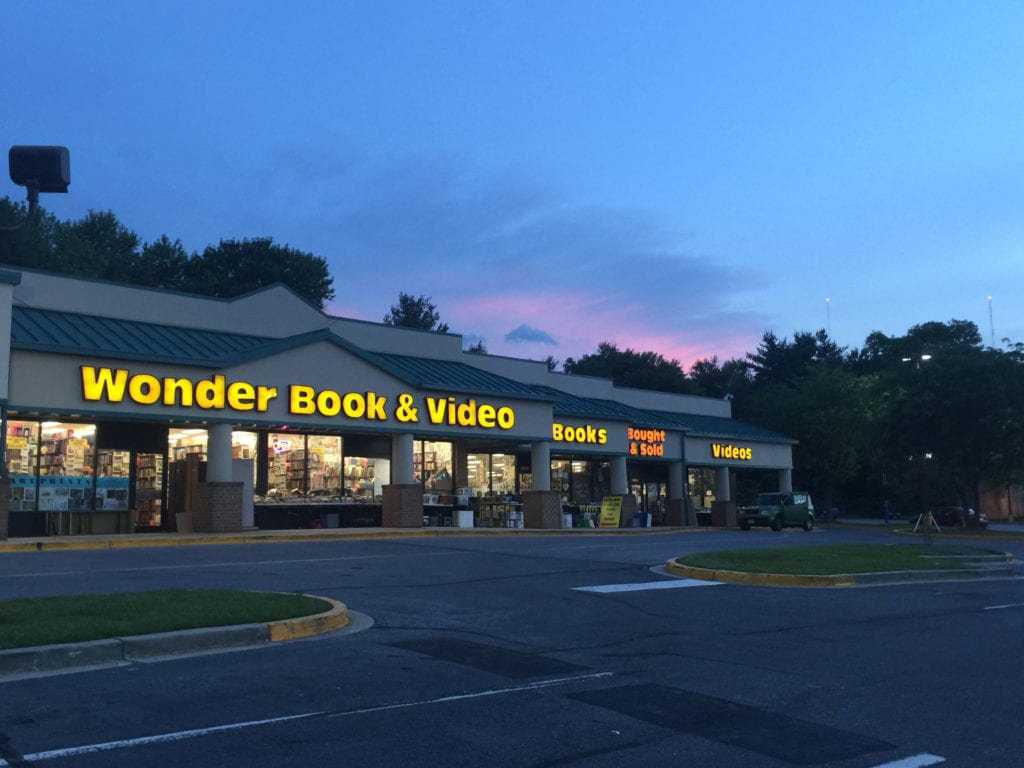
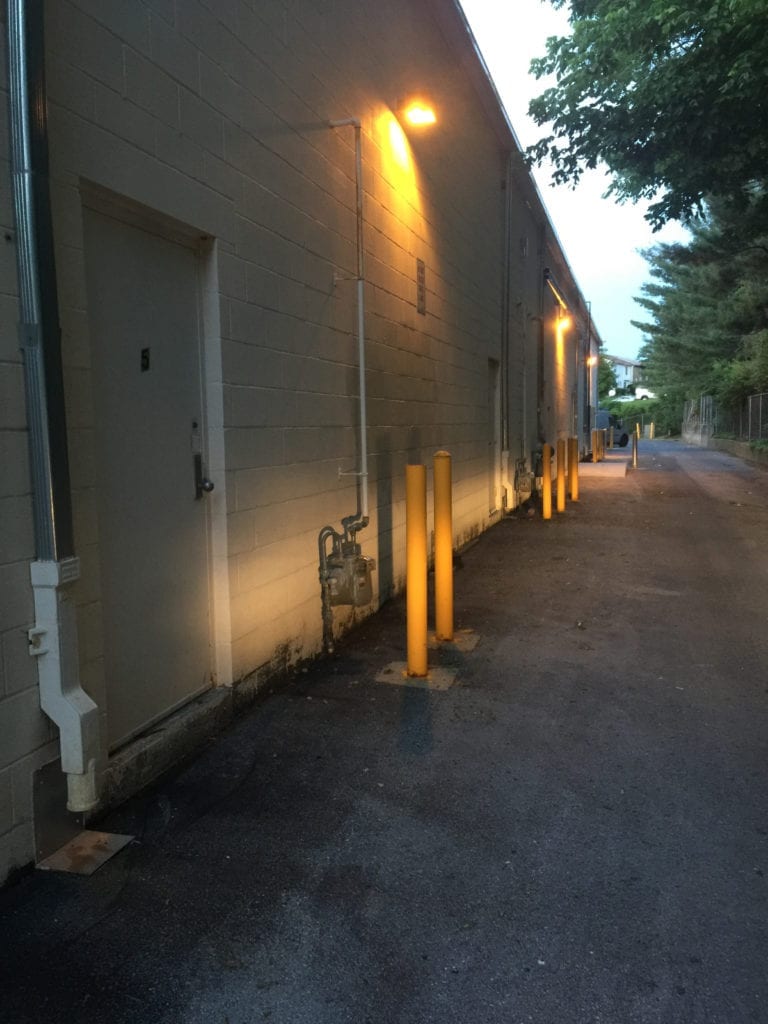
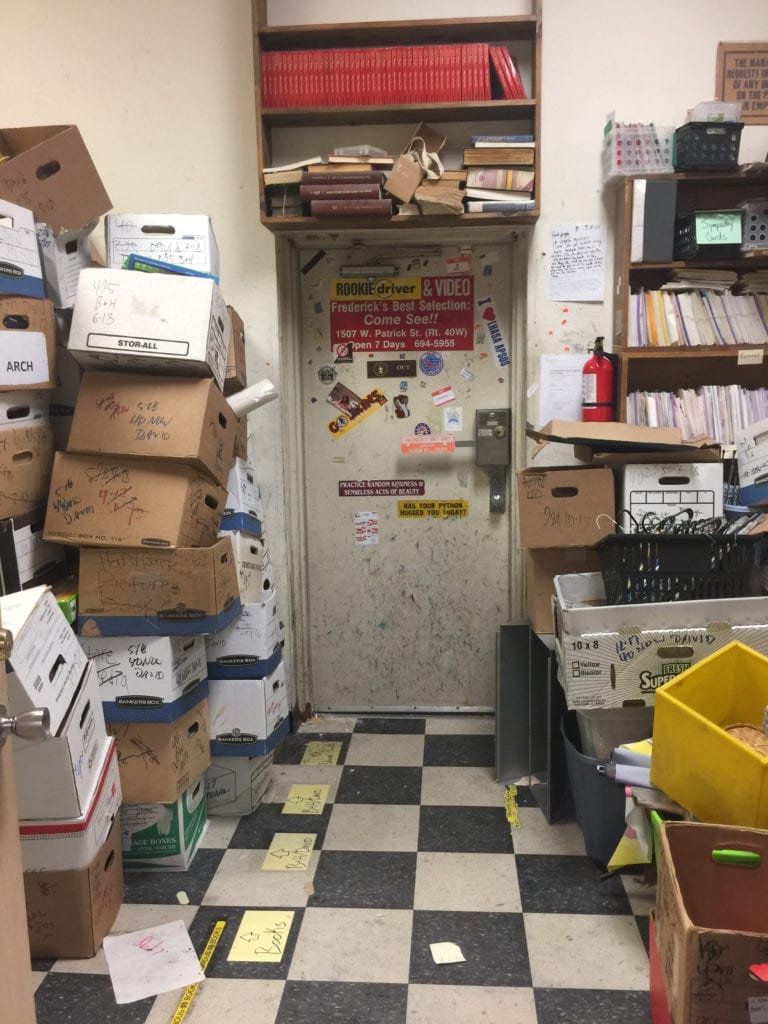
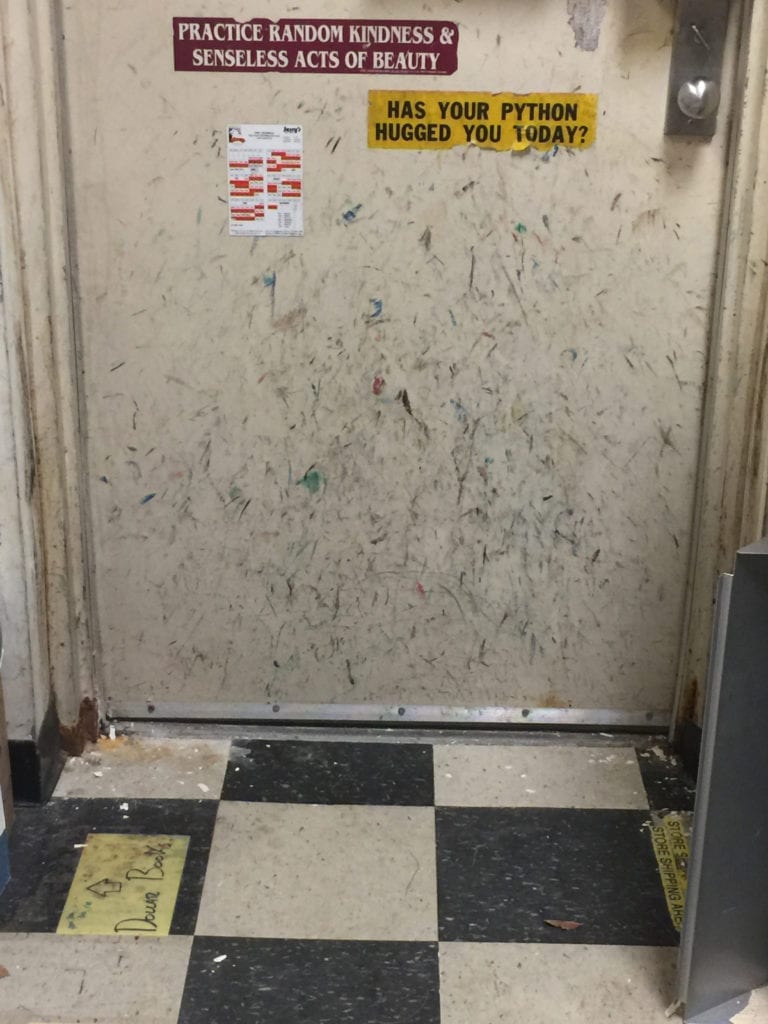

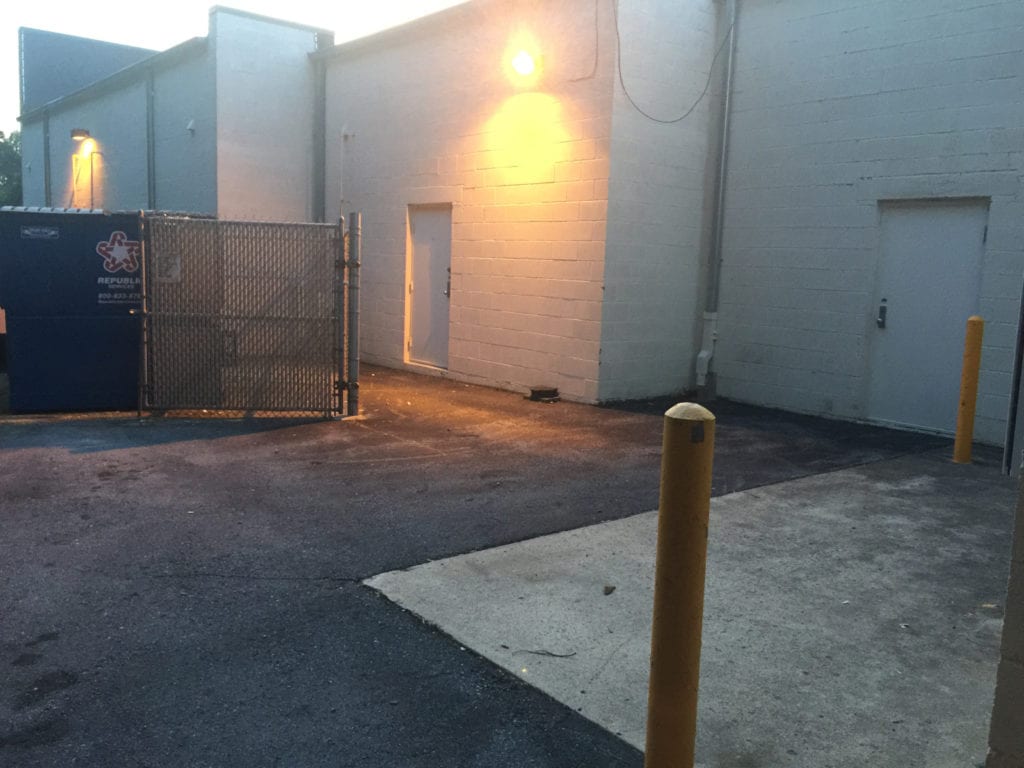
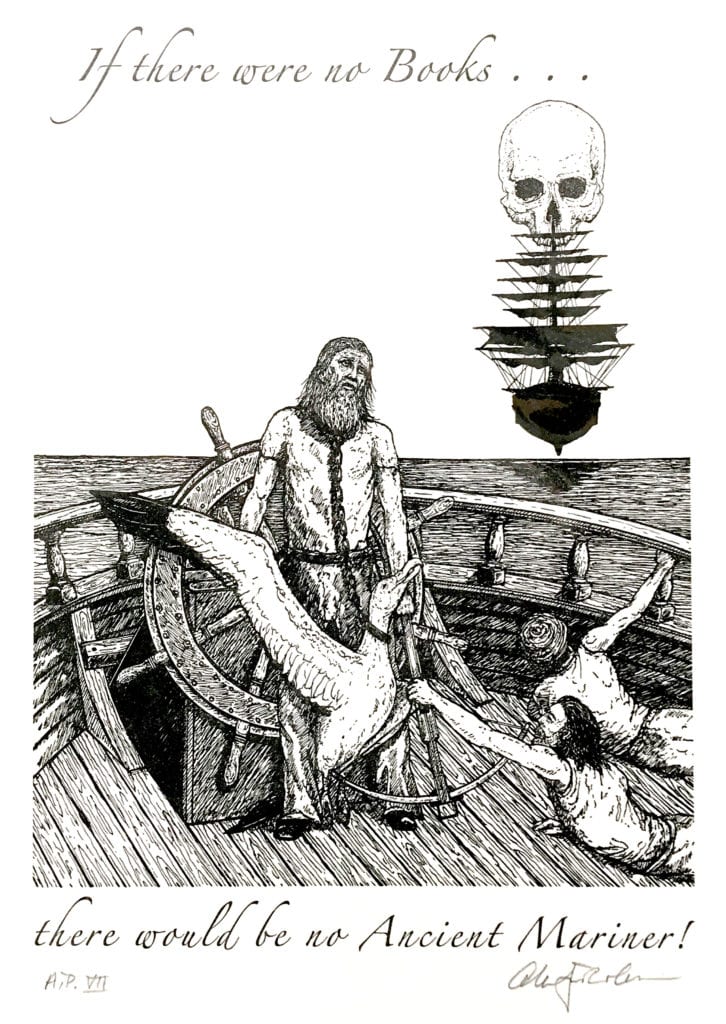
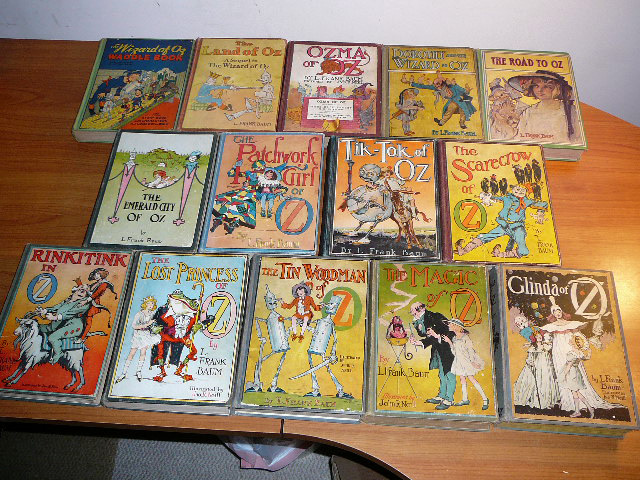
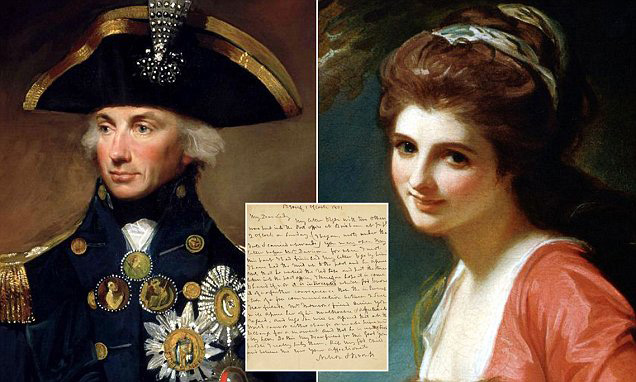
There are no comments to display.